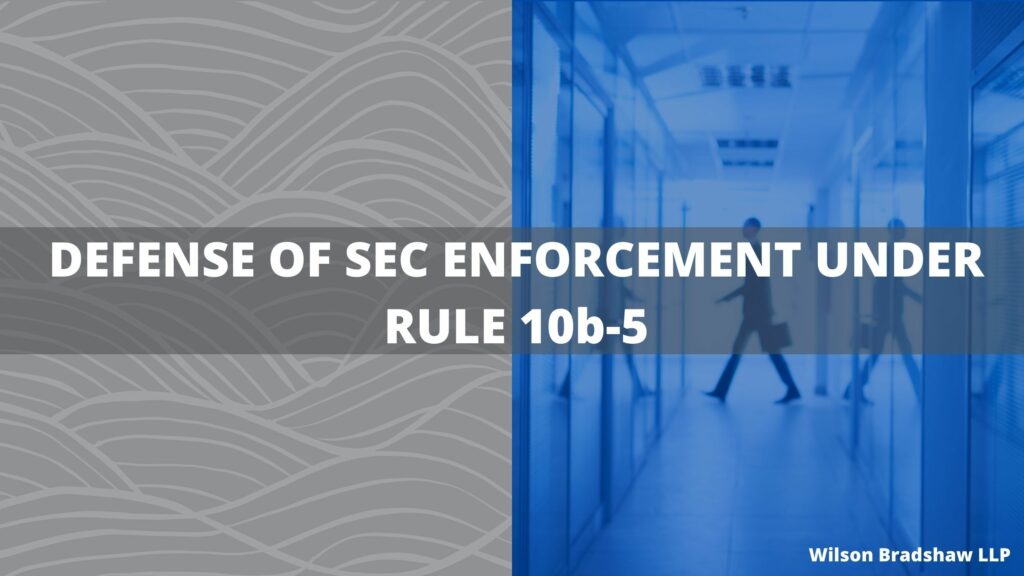The Securities Exchange Commission was recently awarded judgments In four cases involving a violation of SEC Rule 10b-5. The violations in the four cases were different, but they all fell under the same SEC rule. The first announced products that didn’t exist. The second made misleading investment statements. The third submitted false expense reports, and the fourth falsified certification of test results.
SEC Rule 10b-5 was established in the Securities Exchange Act of 1934 to target a growing problem of securities fraud in its many forms, and is worded as follows:
[/column]EMPLOYMENT OF MANIPULATIVE AND DECEPTIVE DEVICES
It shall be unlawful for any person, directly or indirectly, by the use of any means or instrumentality of interstate commerce, or of the mails or of any facility of any national securities exchange,
(a) To employ any device, scheme, or artifice to defraud,
(b) To make any untrue statement of a material fact or to omit to state a material fact necessary in order to make the statements made, in the light of the circumstances under which they were made, not misleading, or
(c) To engage in any act, practice, or course of business which operates or would operate as a fraud or deceit upon any person,
in connection with the purchase or sale of any security.
[/column]There are three essential elements to establish that a person has committed fraud. He must make a false statement, he must know that it is false or make it recklessly, and he must intend the statement to induce another person to act upon it.
SEC Rule 10b5 (a) and (c) require proof of fraud, but (b) is very unforgiving because it covers a wide range of violations and is absolute and doesn’t require proof of intent or recklessness, to establish fraud. It does not take into consideration the motive, mistake, or individual interpretation by the person making the statement. If you make a false statement, or fail to correct a confusing statement with a clarifying statement, you are presumed to be in violation of that rule.
The four judgments mentioned above, do not specify which of the three subsections of Rule 10b-5 are the deciding factor, so we can only assume that there was fraud involved in all four cases. However, it raises the question, that if there is no fraudulent intent involved, and there are mitigating circumstances, or honest mistakes, or a benevolent interpretation of those actions, could a defendant be given the benefit of the doubt and get by with a simple correction of his actions, rather than a devastating judgment?
The attorneys at Wilson Bradshaw LLP are experienced in SEC enforcement defense and have advocated for many defendants accused of SEC rule violations. They analyze a defendant’s position from all angles because they are experienced in fulfilling all the necessary aspects of compliance to those rules.
We would like to hear your comments about your thoughts and experience with Rule 10b-5 or the circumstances of charges that you have witnessed.
[/column]
